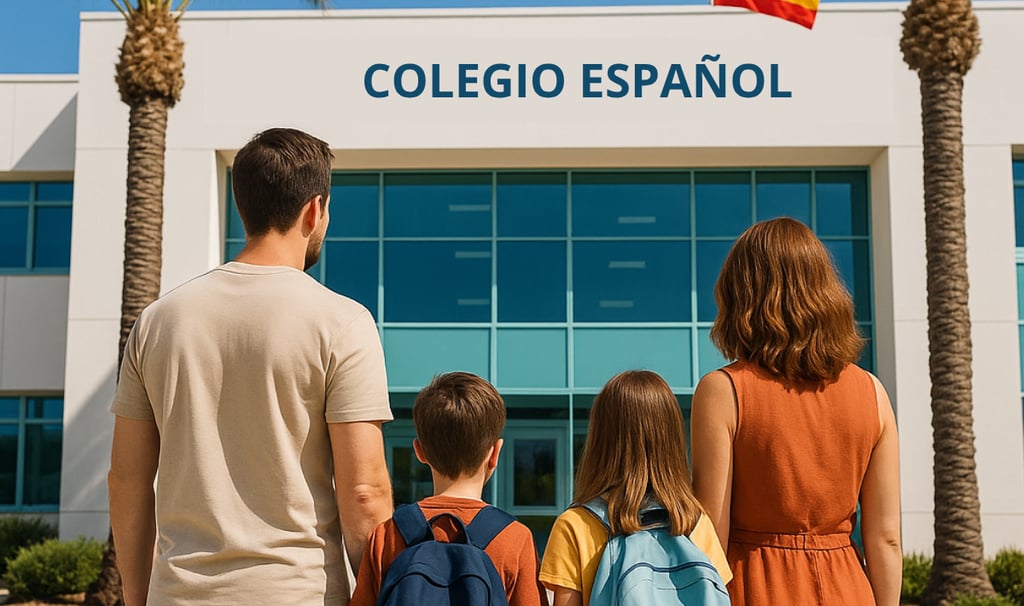What families moving to Costa Blanca should know about schools
Spain offers a well-structured, publicly funded education system. Schooling is free and compulsory from age 6 to 16, though many children start earlier and continue beyond.
LIFESTYLE
Michal Wykowski
6/22/20252 min read


In our previous blog, we wrote about international education options on the Costa Blanca. But what if you’re considering local Spanish schools instead?
Spain offers a well-structured, publicly funded education system. Schooling is free and compulsory from age 6 to 16, though many children start earlier and continue beyond.
Although the national government sets the basic curriculum, regional governments (like the Valencian Community) manage their own school systems. This means some subjects and languages may vary. For example, in Costa Blanca, students learn Valencian alongside Spanish.
Main stages:
0. Preescolar (0–3 years) – Optional early childcare provided in guarderías or escuelas infantiles, helping young children develop social, motor, and language skills before formal schooling begins.
1. Infantil (3–5 years)
Optional preschool, but widely attended. Focuses on early development. Many schools welcome children who don’t yet speak Spanish.
2. Primaria (6–12 years)
First compulsory stage, divided into three 2-year cycles. Core subjects include Spanish, maths, science, art, and PE.
3. Secundaria – ESO (12–16 years)
Completes compulsory education. After ESO, students choose either the academic Bachillerato or vocational FP track.
4. Bachillerato (16–18 years)
Academic route preparing for university. Equivalent to A-levels or high school senior years.
5. Formación Profesional (FP)
Vocational path offering practical training and professional qualifications.
What if my child doesn’t speak Spanish?
Many schools offer language integration programs or “welcome classrooms” (aulas de acogida) to help newcomers learn Spanish, adapt socially, and transition smoothly. In international areas like Costa Blanca, bilingual support is often available, especially in public and semi-private schools.
School types:
• Public (público): Free, state-funded, national curriculum.
• Concertado: Semi-private, partly state-funded, often religious.
• Private: Fully private, often international, with tuition fees.
For language immersion without the high cost of private schools, public or concertado options are excellent and well respected.
What about university?
Students who complete Bachillerato and pass the university entrance exam (Evaluación de Acceso a la Universidad – EBAU) can apply to universities across Spain. The country offers a wide range of public and private institutions, many of which have a strong reputation across Europe. In the Costa Blanca region, notable options include the University of Alicante and Miguel Hernández University in Elche, both offering programs in Spanish and, increasingly, in English.
Starting school in a new language can be daunting, but many families find it a rewarding and enriching experience. Children gain fluency, friendships, and deep cultural connection.
If you’re considering a move and have questions or doubts, feel free to reach out — we’re here to help.
